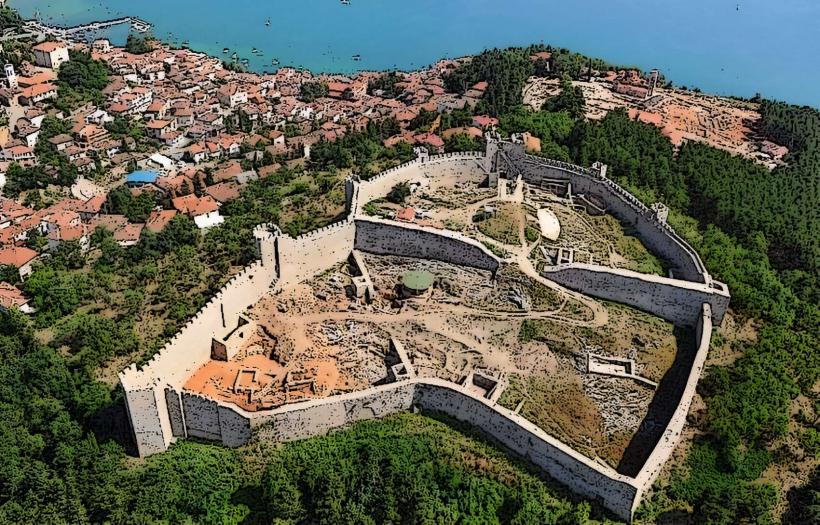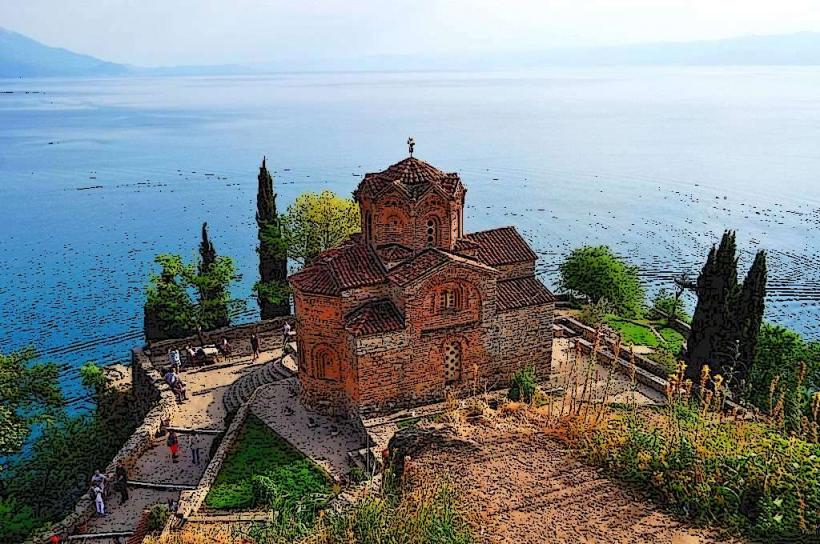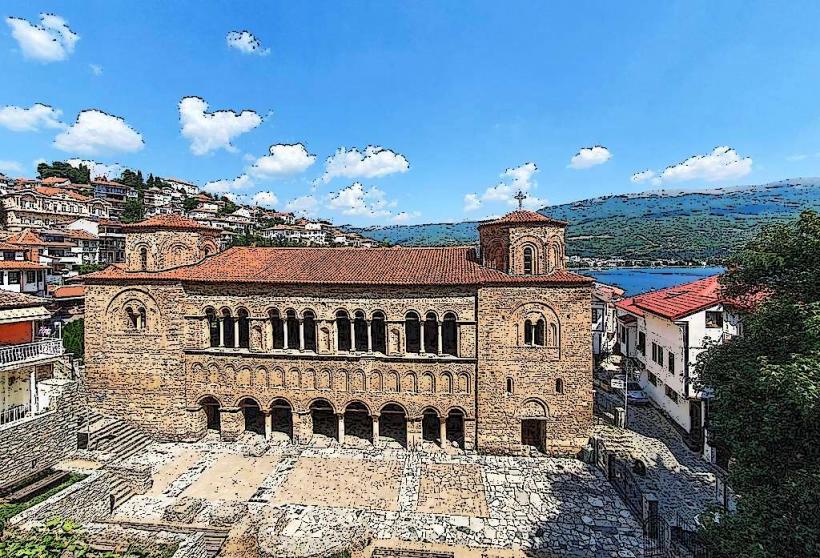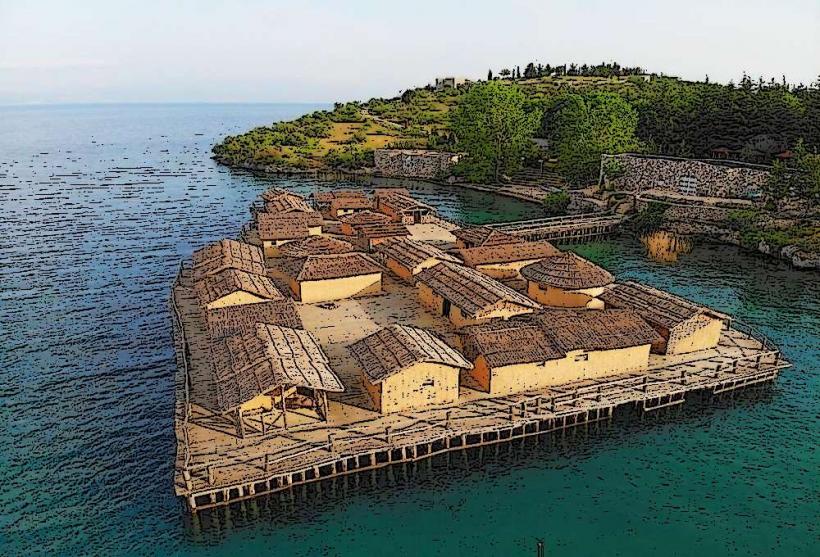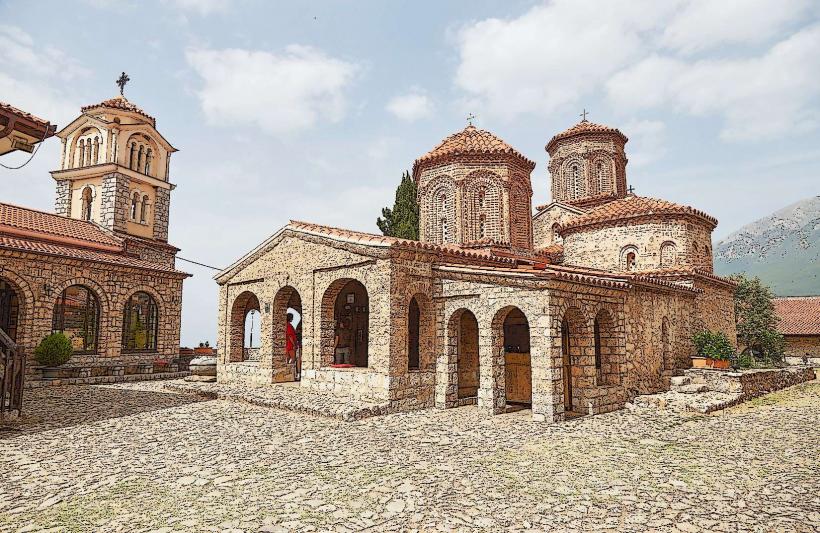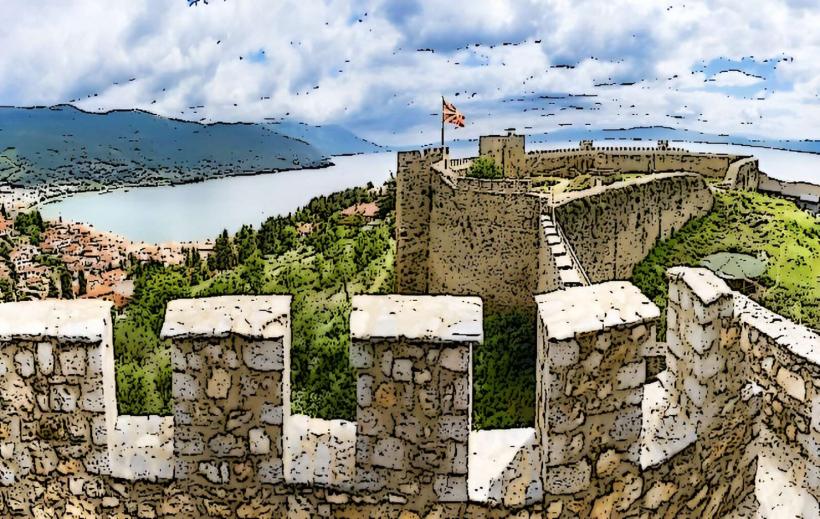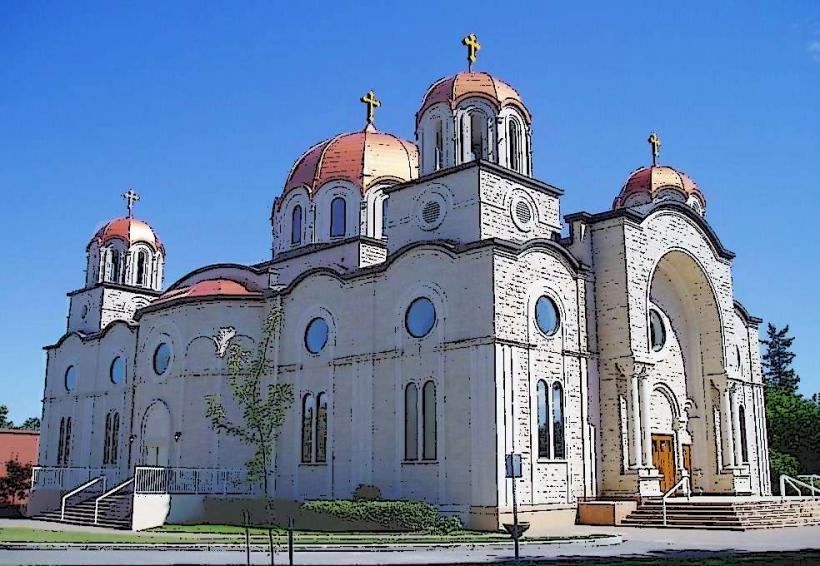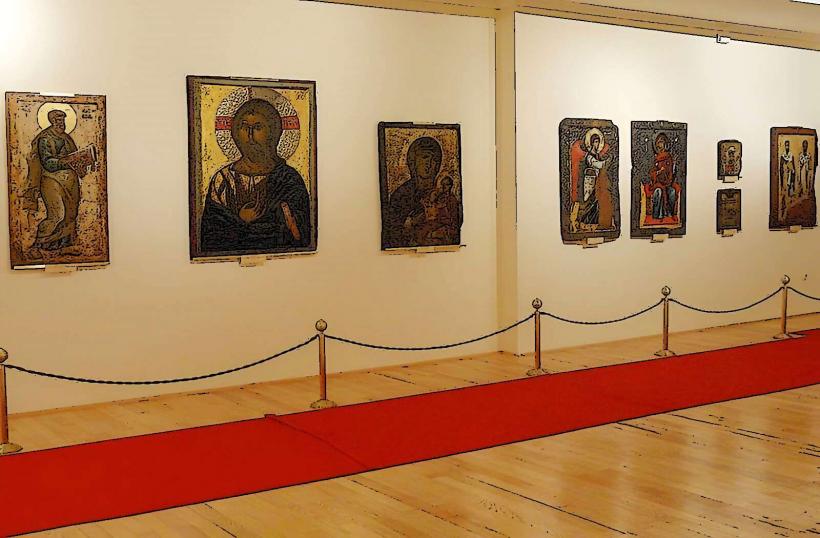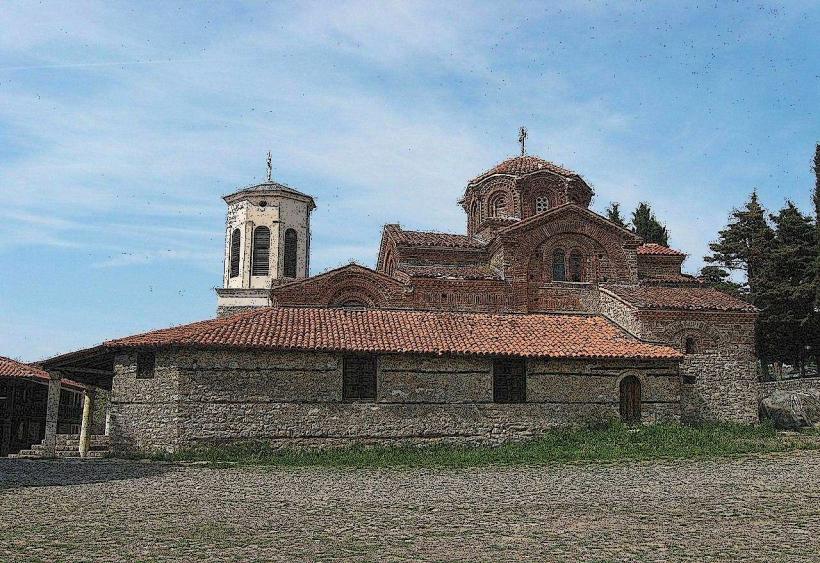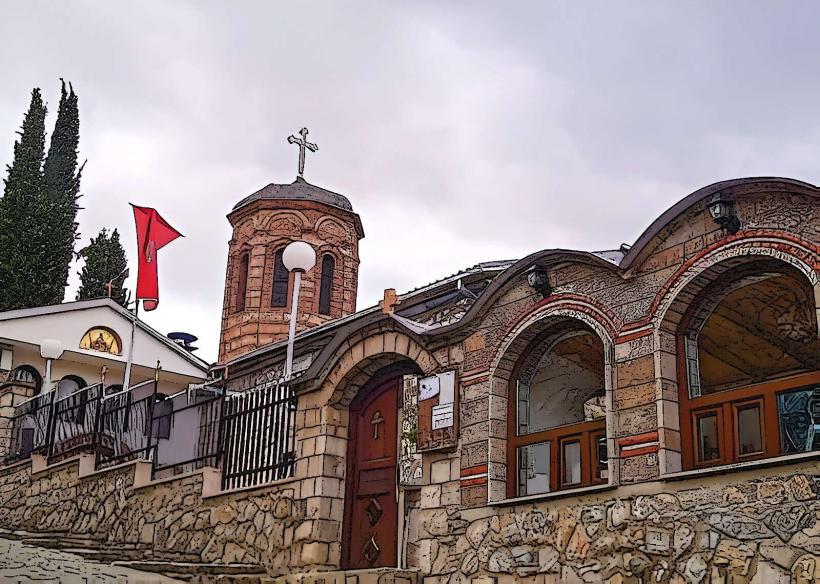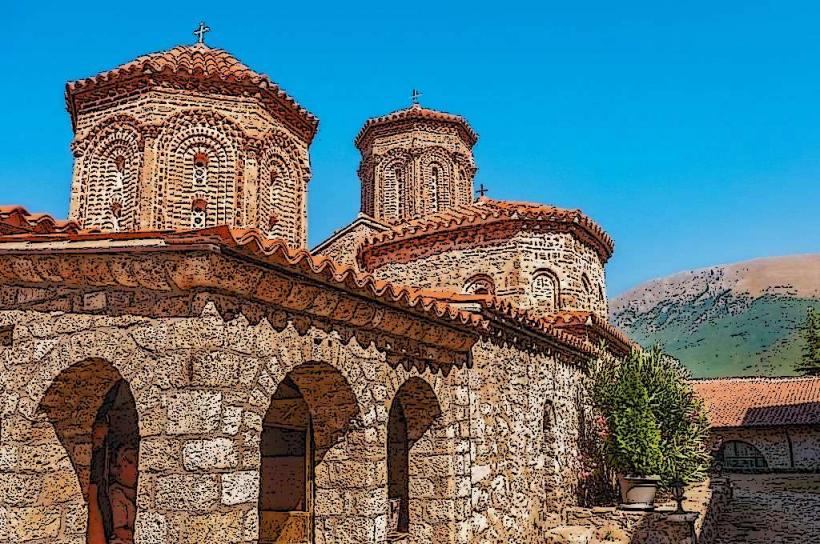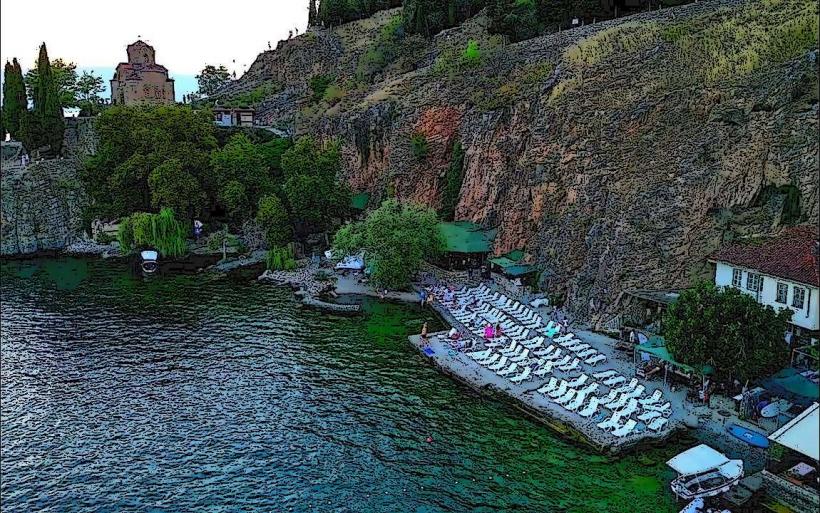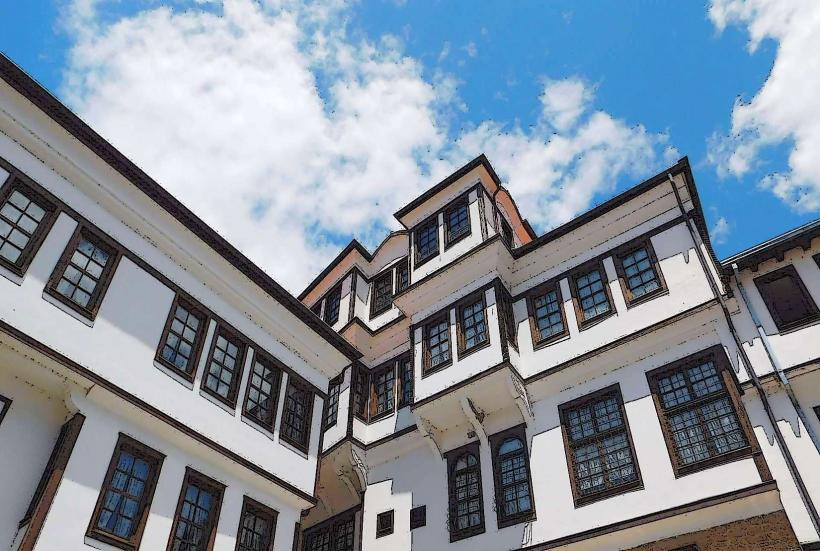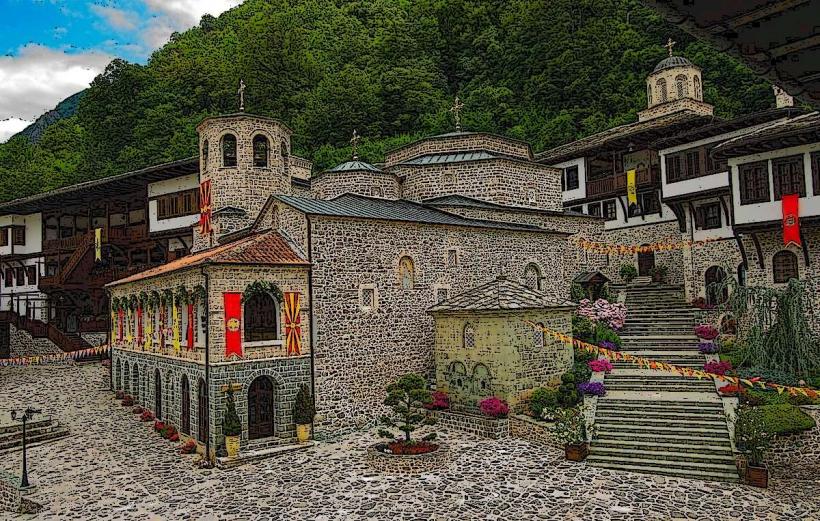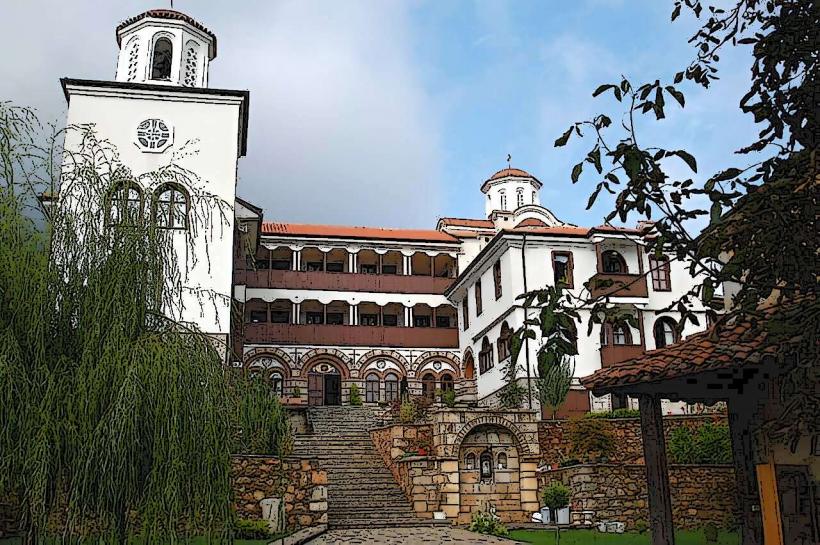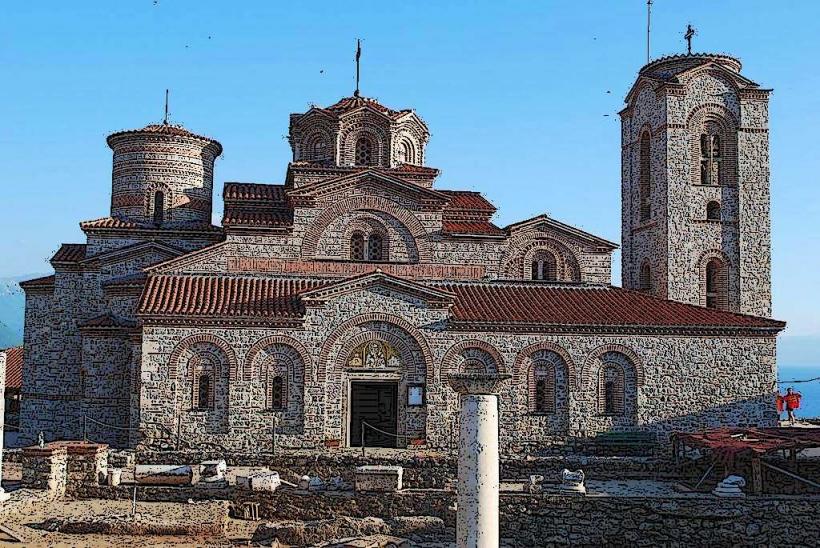Information
Landmark: Ohrid PlaošnikCity: Ohrid
Country: North Macedonia
Continent: Europe
Ohrid Plaošnik, Ohrid, North Macedonia, Europe
Plaošnik is an archaeological complex and spiritual center situated on the southern slope of the higher hill in the old town of Ohrid, North Macedonia. It is primarily known as the site of the Monastery of Saint Pantaleon and the location of the first Slavic university, established in the 9th century by Saint Clement of Ohrid.
Visual Characteristics
The site is a wide, terraced archaeological plateau overlooking Lake Ohrid, dominated by the contemporary reconstruction of the Church of St. Clement and Pantaleon. The church features a five-domed Byzantine-style design with red brick and stone masonry. Surrounding the church are the exposed stone foundations of an Early Christian basilica, extensive floor mosaics protected by modern wooden shelters, and a forest of white marble columns and excavated brick walls.
Location & Access Logistics
The complex is located at the summit of the Ohrid old town, accessible via a 15-minute uphill walk from Ohrid Port or a 5-minute walk from Samuel's Fortress. Pedestrians typically follow the Kuzman Kapidan street. Vehicle access is restricted to local residents; the nearest public parking is at the Upper Gate (Gorna Porta), approximately 0.6km away. No public bus lines reach the plateau.
Historical & Ecological Origin
The site has been a center of religious activity since the 4th century, originally hosting a large Roman basilica. In 893 AD, Saint Clement built a monastery on the site and founded the Ohrid Literary School. The current church was reconstructed in 2002 on the original foundations. Geologically, the plateau consists of a limestone promontory with sparse Mediterranean vegetation, offering high-visibility views of the lake's tectonic basin.
Key Highlights & Activities
Visitors can explore the interior of the church to view the tomb of Saint Clement, visible through a glass floor. Detailed examination of the 4th-6th century floor mosaics in the northern basilica area is a primary activity. The site serves as an active archaeological dig; visitors can observe ongoing excavations of the university complex and the medieval monk quarters.
Infrastructure & Amenities
The complex includes a modern visitor center with a ticket office and public restrooms. The entire plateau is equipped with gravel and stone paths, though some archaeological areas require steps. 4G and 5G cellular coverage is consistently strong. There are no food vendors on the immediate grounds; however, several cafes are located 0.4km away near the Ancient Theatre.
Best Time to Visit
The best time for photography is at sunset, as the western light illuminates the brickwork of the church and the lake surface. The site is open daily from 09:00 to 18:00 (extended until 21:00 in July and August). Early morning visits are optimal to avoid the high temperatures and the peak influx of tour groups between 11:00 and 14:00.
Facts & Legends
A verified historical oddity is the presence of a double-floor baptistery with a highly preserved mosaic depicting the four rivers of Paradise. Local legend states that Saint Clement himself designed the original church and requested to be buried in the crypt he dug with his own hands, which remains the central focal point of the modern reconstruction.
Nearby Landmarks
Samuel's Fortress (0.4km North-West)
Church of St. John at Kaneo (0.5km South-West)
Ancient Theatre of Ohrid (0.6km North-East)
Church of St. Sophia (0.4km South-East)
Upper Gate (Gorna Porta) (0.6km North-East)


